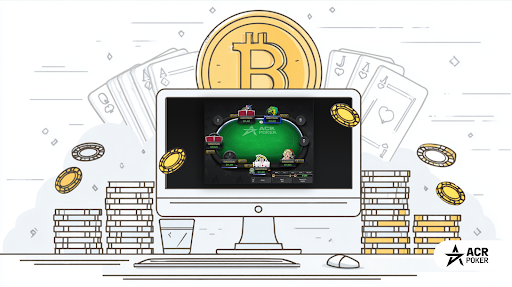Over the last decade, anonymous Bitcoin casinos have become a phenomenon among privacy advocates and online gambling enthusiasts alike. The appeal is clear: bypassing lengthy ID checks, enjoying lightning-fast deposits, and wagering with the relative anonymity of cryptocurrencies. Yet what begins as a convenience can quietly spiral into a source of personal and financial risk—sometimes before players even realize the warning signs are flashing.
For those navigating this new digital frontier, spotting the subtle shift from harmless entertainment to problematic behavior is crucial. Below are the seven most telling indicators that your anonymous Bitcoin casino activities may be crossing into risky territory.
1. Increasing Difficulty in Controlling Playtime
Perhaps the biggest red flag comes not from your bank statements, but from the clock. Many users start with the intention of “just a few rounds,” only to realize hours have passed in a blur of adrenaline and expectation. The 24/7 accessibility of blockchain-based gambling platforms, combined with the frictionless deposits of Bitcoin, makes it alarmingly easy for time commitments to spiral well beyond original intentions.
In the context of anonymous casinos, this lack of external checks—no responsible gambling reminders or enforced cooling-off periods—means self-discipline is often the only safeguard. Rampant reports of “session creep” underscore how anonymity, while protecting your identity, also removes guardrails that might otherwise prompt a pause.
2. Obsessive Focus on Account Balances and Transaction Histories
For many, Bitcoin’s transparency is a feature, not a bug. On-chain transactions are publicly traceable, yet tied to pseudonymous addresses. This, however, can feed an obsessive cycle of constantly monitoring deposits, withdrawals, and in-game balances—leading to stress or even compulsive behavior.
Anonymous players, often wary of potential hacks or platform insolvencies, may spend inordinate amounts of time tracking every satoshi. This behavior isn’t merely about “good bookkeeping”—it’s often a sign that anxiety about losses or missing funds is beginning to dominate the experience.
“The double-edged sword of blockchain’s transparency is that users can slip into hyper-vigilance, checking their balances multiple times a day,” notes Dr. Helena Wright, a specialist in behavioral addiction. “This level of focus is rarely seen in traditional casino environments and can be a hallmark of problematic play.”
3. Downplaying or Concealing Time Spent Gambling
Unlike traditional gaming—where purchases or activity reports may be visible to banks, partners, or family—anonymous Bitcoin casinos leave no obvious paper trail. This invisibility can encourage secrecy. If you find yourself intentionally omitting details about your play, minimizing how much time or crypto you’ve spent, or actively hiding your activity from others, it could be a warning sign.
This tendency is sometimes rationalized as a “privacy issue,” but often it reflects growing shame, guilt, or defensiveness—emotional cues associated with escalating risk in gambling studies.
4. Chasing Losses and Escalating Stakes
Losses are an inevitable aspect of gambling, but the temptation to rapidly recover them—the classic ‘chase’—is where the greatest dangers lie. In the world of anonymous Bitcoin betting, with instant transfers and no credit card blocks, it’s startlingly simple to send more funds after a bad streak.
Furthermore, the volatility of Bitcoin itself adds an extra layer of risk. Not only could bets be lost, but the underlying value of any remaining balance may swing dramatically, fueling further risky behaviors. Reports in online forums frequently recount stories of “doubling down” in the hopes of recovering both gambling and crypto-market losses—a toxic combination.
A Scenario: The High-Speed Downward Spiral
Imagine a player who has just suffered several large losses. With no withdrawal restrictions and 24/7 access, they transfer more Bitcoin in a matter of seconds, convincing themselves they’re due for a win. The process repeats—the stakes climb, the urgency intensifies, and soon the losses far outweigh any possible recovery, both on the tables and in crypto value.
5. Ignoring Platform Warning Signs and Security Concerns
While the anonymity of Bitcoin casinos is valued, it comes with heightened risk of scams, rigged games, or outright theft. Many users, caught up in rapid play, overlook—or rationalize away—obvious red flags: delayed withdrawals, lacking a clear operator, or sudden changes to terms.
Repeatedly playing on platforms despite such warning signs—or brushing off stories from other players of lost funds—suggests that the habit may be overpowering judgement. Industry research has shown that users in deeper states of problematic gambling are more likely to disregard such clear evidence of risk.
6. Rising Financial Anxiety and Life Disruption
Anonymous Bitcoin casino use often attracts those seeking financial privacy. Yet for some, it leads to mounting anxiety about both losses and the security of their crypto assets. If checking your holdings or wagering outcomes is injecting consistent stress into unrelated parts of life—be it work, relationships, or sleep—it’s a bright warning flare.
Unlike losses with credit cards or bank transfers, which may come with some level of recourse or dispute, Bitcoin bets are final. With no central authority to appeal to, any regrets are compounded. This realization often triggers stress spikes and emotional volatility.
7. Difficulty Stopping Despite Negative Consequences
The ultimate warning sign is simple, but profound: you wish to cut back or stop playing, but find yourself unable. If repeated attempts to take a break quickly fall apart—and you’re continuing despite mounting negatives—it’s time to take a hard look at your habits.
A 2023 report from the International Centre for Responsible Gambling highlighted this cycle as a “classic pathway to harm” in tech-facilitated gambling environments. With anonymous Bitcoin casinos, these negative consequences are magnified by the inability of outside parties to intervene or provide support.

Conclusion: Navigating the Frontier Responsibly
Anonymous Bitcoin casinos have ushered in a new era of privacy-first online gaming, but with this autonomy comes increased personal responsibility. Recognizing the early signals of escalating risk—be it lost time, rising anxiety, or a creeping sense of secrecy—can be critical to maintaining control.
For those noticing one or more of these symptoms, consider setting self-imposed limits, seeking out community support, or taking a period of complete abstention. Several reputable organizations now offer confidential help tailored to crypto gamblers, and most online communities support those looking to reset.
As with any powerful new tool, the key is not blind prohibition or unchecked indulgence, but measured awareness and self-governance.
FAQs
What makes anonymous Bitcoin casinos riskier than traditional online casinos?
Anonymous Bitcoin platforms typically lack external oversight, responsible gambling tools, or recourse if things go wrong. The ease of instant transfers and lack of identity checks can also make it harder to regulate behavior and harder for others to intervene.
How can I tell if my gambling habits are becoming problematic?
Warning signs include losing track of time, obsessively checking balances, hiding play from others, and feeling unable to stop even as losses pile up. If gambling is leading to anxiety or impacts other parts of your life, it may be time to seek support.
Are crypto gambling losses ever recoverable?
In most cases, bets and deposits in anonymous Bitcoin casinos are final—with no way to retract transactions or appeal to governing bodies. This finality is part of what makes harm harder to reverse compared to traditional platforms.
What protective measures can I take while using Bitcoin casinos?
Consider pre-setting gambling budgets, taking regular breaks, and using wallets with limited funds. Always vet casinos thoroughly for transparency, reputation, and fairness before playing.
Is it possible to get help anonymously if I’m struggling with crypto gambling?
Yes. Several organizations—such as Gamblers Anonymous and online crypto-specific support groups—allow for confidential help. Many forums also provide resources without requiring disclosure of personal information.













Leave a comment